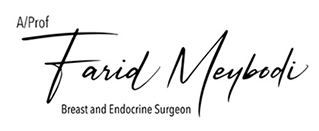What is Accessory Breast Tissue?
Accessory breast tissue, which is also known as supernumerary breast tissue, is the presence of extra breast tissue outside the typical breast area. This condition can affect both men and women, but it is more commonly found in women. Accessory breast tissue usually appears along the "milk line," which is a developmental path extending from the armpit to the groin. The most common location for accessory breast tissue is the armpits.
What causes the formation of accessory breast tissue?
Accessory breast tissue is caused by embryological factors, which means breast tissue that forms along the milk line during fetal development may not fully regress, leaving behind extra breast tissue. Hormonal changes during puberty, pregnancy, or breastfeeding can make this tissue more noticeable or symptomatic.
What are the symptoms of Accessory Breast Tissue?
Pain and discomfort: Accessory breast tissue can be tender and painful, especially during hormonal fluctuations.
Swelling and enlargement: The tissue may become more prominent during puberty, menstruation, or pregnancy.
Nipple discharge: Some individuals may experience nipple discharge from the accessory breast tissue.
Cosmetic concerns: Accessory breast tissue can affect one's appearance and self-esteem.
How can Accessory Breast Tissue be diagnosed?
If you suspect you have accessory breast tissue or are experiencing symptoms, it's important to consult a healthcare provider. Diagnosis typically involves a physical examination and, in some cases, imaging studies such as ultrasounds used to confirm the presence and extent of the tissue.
What are the treatment options for Accessory Breast Tissue?
Observation: If the accessory breast tissue is asymptomatic and not causing any discomfort, observation may be recommended.
Pain management: Over-the-counter pain relievers or prescription medications can help manage pain and discomfort associated with this condition.
Surgical removal: In cases of severe pain, discomfort, or cosmetic concerns surgical excision may be necessary to remove the accessory breast tissue.
Do Medicare and private health funds support Accessory Breast Tissue surgery?
Yes. Accessory breast tissue is a medical condition, and item 31560 covers its removal.







